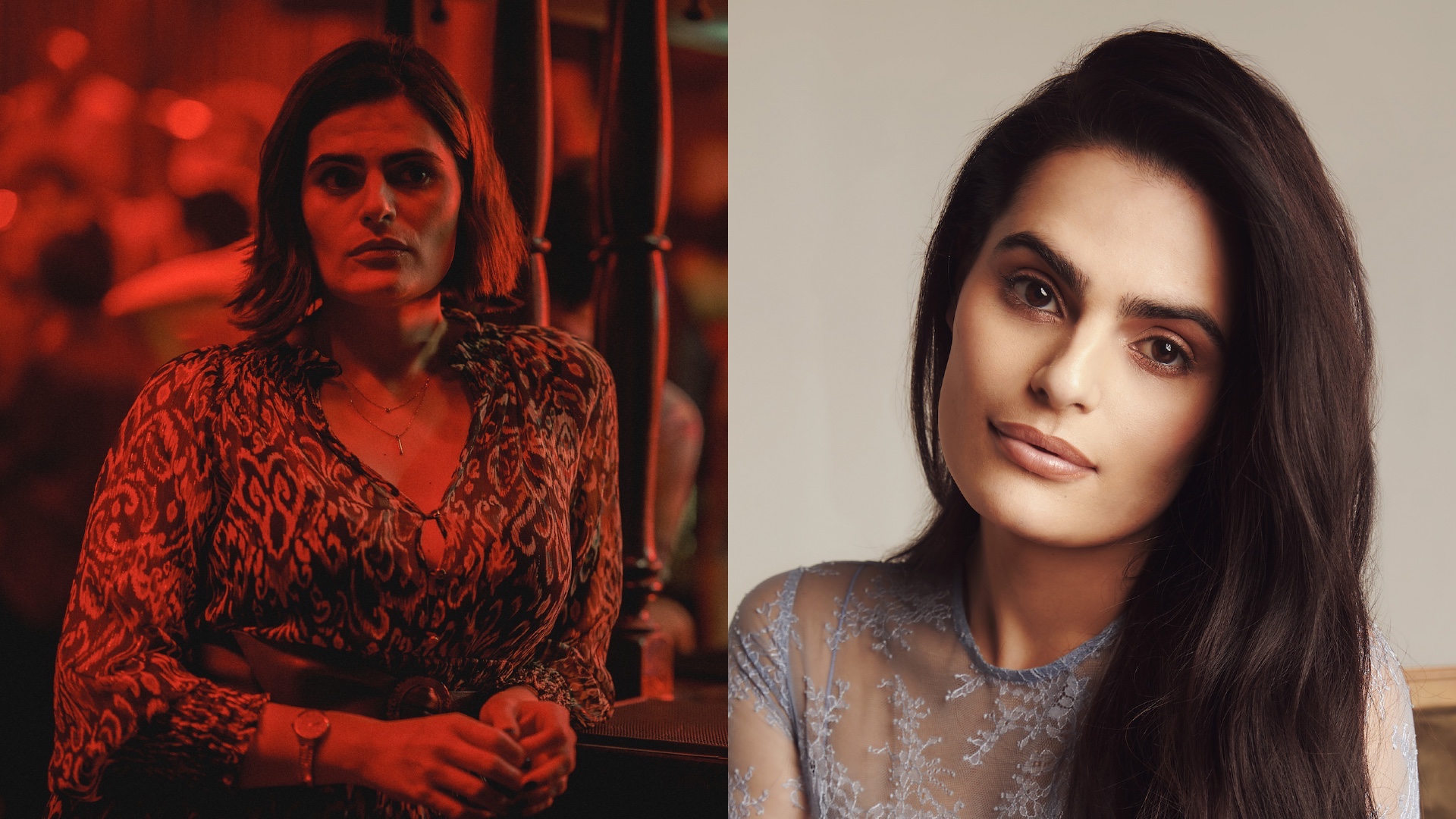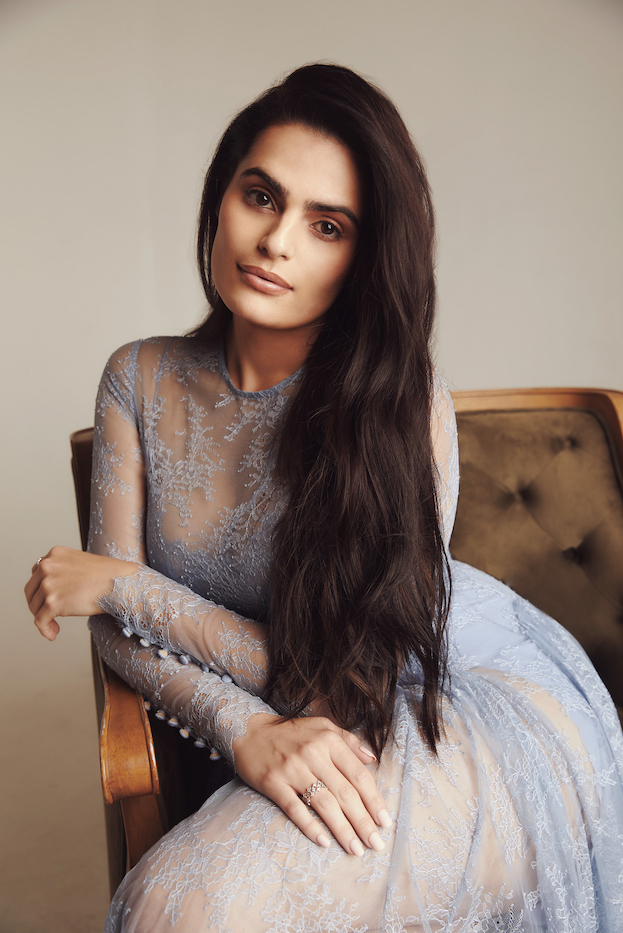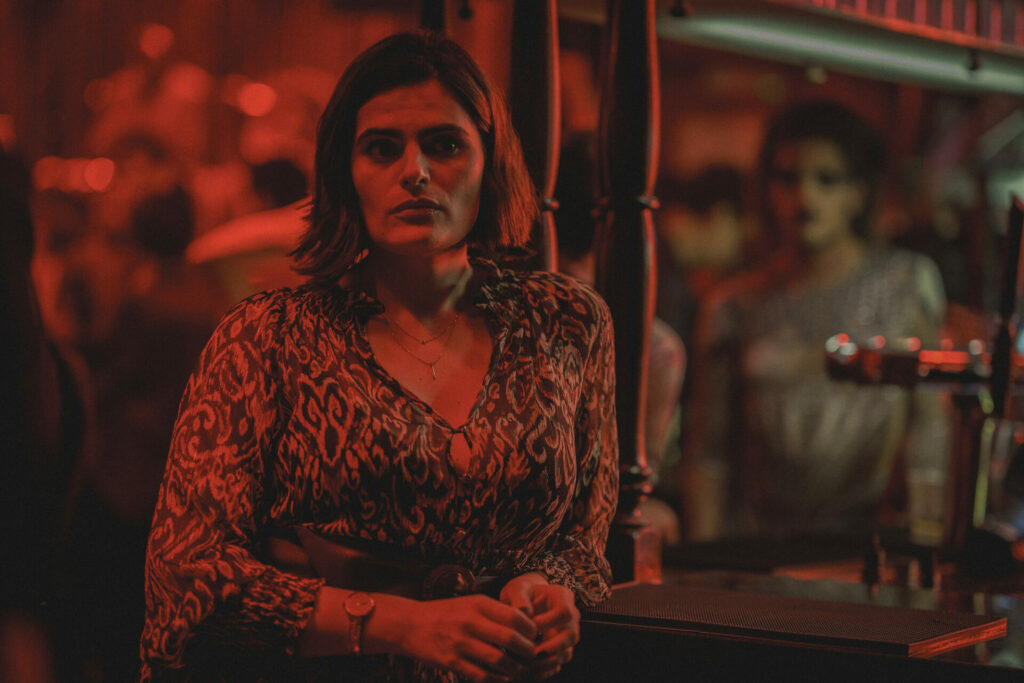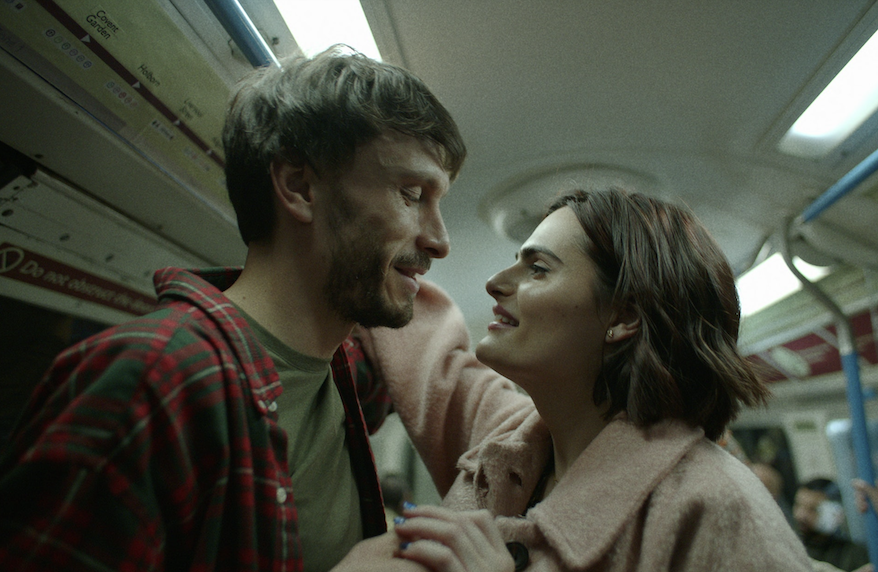Baby Reindeer’s Nava Mau interview: ‘I felt empowered playing Teri – I learned a lot from her’
Exclusive: "It was very familiar for me to be in a situation dating a man that has not worked through his shame," Nava tells Attitude

It’s another wet afternoon in London when I speak to Nava Mau via video call from Los Angeles, but as her screen camera turns on, she radiates a warmth and joy that immediately brightens my day. “I feel like London weather always reminds me to be grateful,” laughs Nava as I regale her of our seemingly never-ending winter.
Balmy LA weather aside, Nava has much to be happy about. Her supporting role in Baby Reindeer has become the surprise hit of the season, with critics and fans celebrating the series based on the real-life experience of writer/actor Richard Gadd.
It’s testament to the exhilarating writing and character development that the series has hit the top spot in Netflix territories around the world. Away from Richard Gadd’s role playing his fictional self ‘Donny’ and Jessica Gunning’s enthralling friend-come-stalker Martha, Nava Mau delivers a stand-out supporting role as Teri, the trans woman that Donny falls for. Caught in a knot of toxic masculinity and deceit, Donny fails to deal with his shame, allowing it to become a barrier to loving Teri. Their relationship gives Donny a glimmer of hope that if he could just let go of that shame, he may be able to find happiness.

For Nava, the Baby Reindeer acting gig is just another bow to her armory. She was a production fellow on the must-watch documentary film Disclosure, which unpicks the shocking history of trans representation on screen, while also listing writer, translator and filmmaker on an already impressive CV. And she has a degree in Linguistics and Cognitive Science to top that all off, too. Turning everything Nava touches to gold seems to be second nature.
I binged the whole Baby Reindeer in one sitting, which I never do. I’m not a binge watcher at all, but it was thoroughly gripping. What attracted you to that project?
It was the first time that I had ever seen a script that felt like it was written by somebody who’d actually known and loved a trans woman. I really related to Teri, and I just felt like it had to be something I was a part of.
I guess there are still so few examples of good representation out there. How was that for you growing up?
Growing up there was nowhere really for me to look other than representations that were violent and dehumanising. So, coming into work in film and television, I’ve felt a sense of responsibility and a mission to create representation of trans people on screen. It’s always a surprise to me when something comes along and I’m like, ‘Oh wow, this feels like it actually speaks to me as a trans person.’ I kind of don’t expect it. I expect to have to do it myself or to do it in collaboration with other trans people. I guess it’s made me strong, it’s made me not have to rely on external modes of validation. I have to feel confident in who I am based on what I know of myself in my actual real life, and the people around me as opposed to what the media may or may not be saying about people like me.
What examples of representation have offended, really hurt you or that you’ve not enjoyed?
I think that in the 90s and the 2000s and into the 2010s, I think there was just an undercurrent of a punching bag that was available for comedies to make jokes about trans people. And it’s almost hard to pinpoint the specific examples, but what I can pinpoint is the feeling of watching something that is funny, that makes you feel good, that maybe is even family oriented. And then all of a sudden there’s this joke about a trans person being disgusting or a trans person deserving violence, or it’s a cis person dressed up as a trans person, and it’s meant to be the joke. I remember that feeling of like, ‘Oh, okay, I guess people don’t like trans people.’
There’s a film from the 80s where a man is head over heels in love with this woman. After a couple dates they’re in a hotel room and she discloses that she’s trans and he throws up. The documentary Disclosure, which is about the representation of trans people on screen, talks about how that trope got replicated many times. So more than anything, it’s about the tropes.

There’s a lot of discussion at the moment about how comedy is being used as a license to put out hate.
I think that comedy is meant to unite people. It is meant to remind us what we have in common and that we’re not so different after all. So, I disagree with people who think that comedy is meant to be offensive or that comedy is meant to test the limits of what holds us together.
When did you first feel seen on television?
One of the first times that I remember feeling seen was the character of Callie Torres on Grey’s Anatomy. Callie was curvy and bisexual and Latina, and she wasn’t interested in playing nice to placate whatever assumptions people had about her. Looking back, I can see that was so meaningful to have a queer Latina be a surgeon on TV and be in love and be loved and be funny and strong and intelligent. And I was a child when I saw that. So I think it really made an imprint.
And in the character of Teri in Baby Reindeer, what of your personal experiences or personal references did you infuse in her?
Well, it was very familiar for me to be in a situation dating a man that has not worked through his shame. I didn’t have to do any research to figure out the emotions of trying to find love and intimacy with somebody who is running away from it. This erratic pursuit and erratic energy is something that I think is common in how cis men tend to approach trans women. So that was very familiar to me.
One of the things I loved about the character is that it wasn’t about her journey to accepting her transness. It was her fully formed and fully happy in her identity, which I felt was wonderful. We don’t see enough of that.
She has her own life. She didn’t need him. I think she wanted to be with him, but she’s complete. And I think that in the story, in some ways, she’s a pillar and then all this other stuff is happening around her. So yeah, I felt empowered playing Teri. I learned a lot from her, I really did.
What did you learn from her?
That I can be unapologetic and that I can allow my emotional responses to flow through my body. I don’t need to always be so careful about how people are going to receive it. I get to be alive, too. I get to be present and engaged. I don’t have to be the one that’s taking care of anybody. So I thank her for that.
When did you first realise you were different?
I was very fortunate that in childhood my mom especially took great care to allow me to flourish. And so my gender was not very policed as a child. I think that it wasn’t until I moved to the United States when I was eight that I immediately started getting bullied. My bully would say all kinds of things, but his main refrain was that he would say that I was a girl.
I think the issue with queer-phobic bullying is that subconsciously we know they’re right because we are different, but it’s the singling out that we’re different that is painful.
Exactly. To be singled out is not inherently a violent thing. To be singled out and then for that to be paired with violence, with harassment is what causes harm.

Do you remember when you first felt most comfortable in yourself?
I was on a journey of finding comfort within my body, within my skin, within my identity for a long time. I tried different avenues to get there. It’s only in the past few years that I feel like I finally am settled within myself and my identity. And that is very specific to being a trans person.
I guess being a queer person means ongoing work forever, doesn’t it? Because there’s always going to be somebody that doesn’t like us. Before we sign off, what hope would you give to a young person now or an older person who’s discovering their transness?
I think that we will never not have community because we will never not exist in every corner of the world. So even in times of persecution, even in times of isolation and deep repression, we are one with the universe. We belong here and we have something to offer. And so we have to ride the wave. We have to keep going. And the only way for us to do that is to do it together.
Baby Reindeer is streaming on Netflix now.
